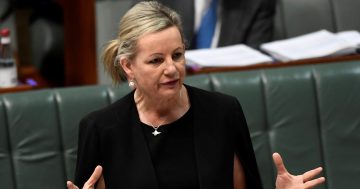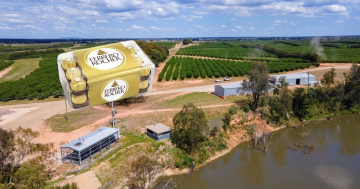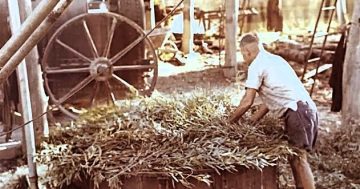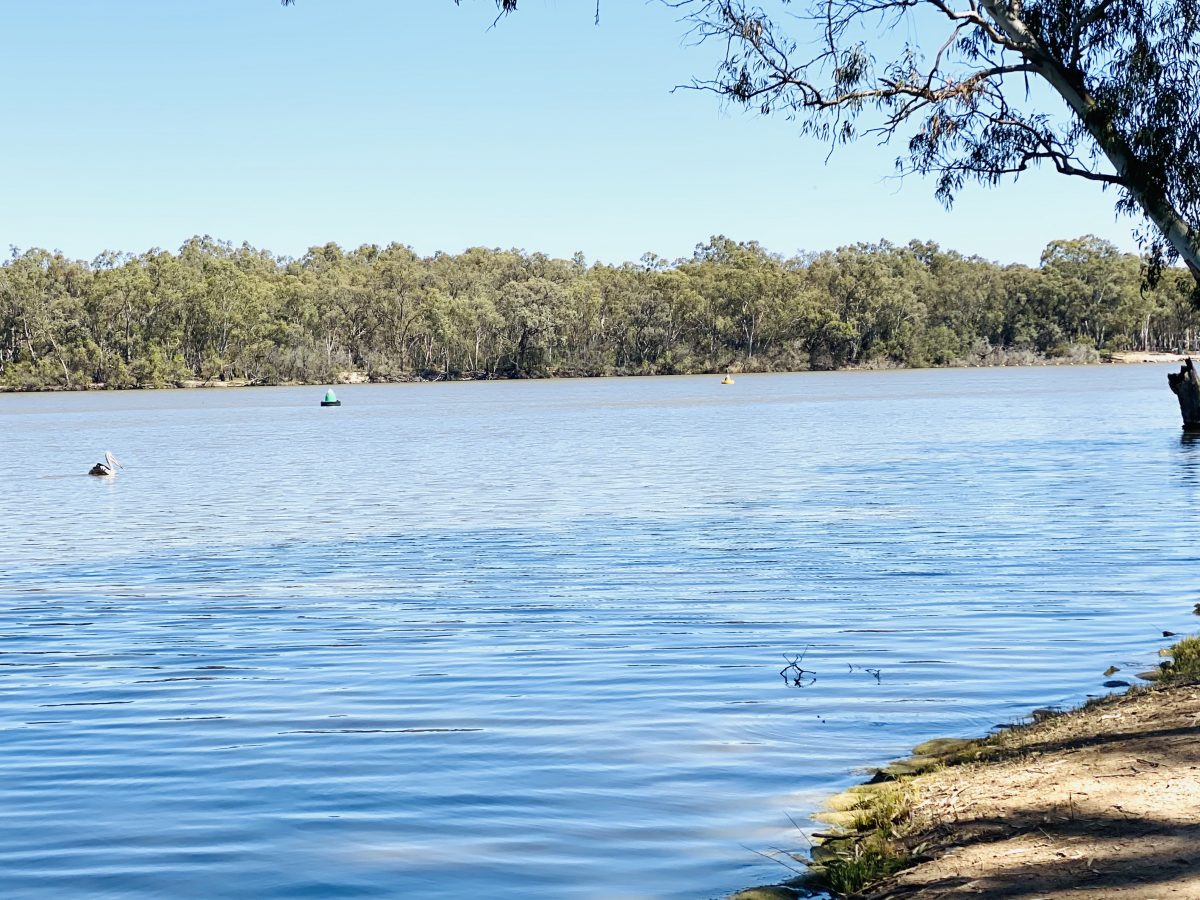
NCC is concerned that enough water won’t reach the Murray Darling Junction if floodplain harvesting isn’t policed. Photo: Oliver Jacques.
NSW’s leading environmental advocacy organisation has slammed the state’s regulation of illegal water extraction, saying penalties are too lenient and it is “extremely concerned” that a major form of water take doesn’t appear to be policed at all.
A number of recent high-profile court cases has seen Riverina and Far West irrigators fined for breaching the state’s water laws, meaning farmers have been penalised for extracting river water in excess of what their water access licence allows them to take.
But Nature Conservation Council CEO Jacqui Mumford says the “fines represent a relatively small ‘cost of doing business’ that are insignificant when compared to the profits gained from breaking the law”.
“NCC welcomes the prosecution of water theft but do not believe the scale of the penalties act as a significant deterrent,” she said. “They are therefore unlikely to deter large agribusiness and water barons from breaking the law. For example, The Harris sentencing saw a $60,000 fine for the theft of almost two billion litres of water, water that was worth millions of dollars in profits. There is one relatively simple reform that would be more effective in stopping serious water theft – penalties for stealing significant volumes of water should include a loss of water access licence.”
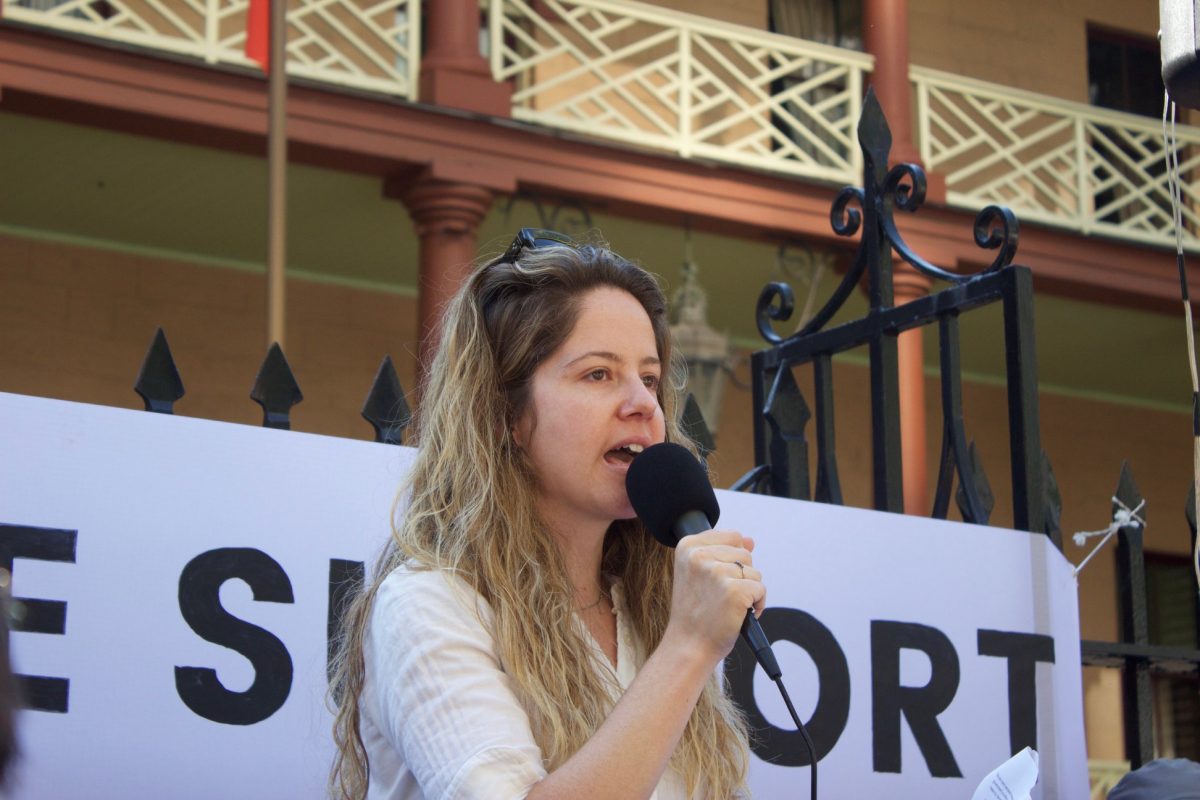
NCC CEO Jacqui Mumford. Photo: School Strike 4 Climate/Facebook.
The peak body is also critical of the scope and extent of water regulation in NSW. Region confirmed the state’s water police, the Natural Resources Access Regulator (NRAR), has not issued a single fine for illegal floodplain harvesting – the practice of irrigators siphoning off rainwater into their private dams before it reaches the river – in the five years since it was established.
“No,” an NRAR spokesperson responded when asked if they’d ever issued a penalty notice for floodplain harvesting. “Investigations are ongoing in relation to several floodplain harvesting matters and penalty notices are just one of many enforcement options available to NRAR. Decisions relating to what type of enforcement action will be taken in a certain matter depend on the particular circumstances of the case.”
Ms Mumford said she was “extremely concerned” by the lack of regulation in this area.
“We are seeing the outcome of decades of unlimited floodplain harvesting, with massive fish kill events occurring in both drought and flood times. To allow irrigators to take up to 500 per cent of a licence allocation in a single year is a recipe for disaster. We are seeing important floodwaters stolen from the environment and downstream communities. For decades the [NSW Government] Department has identified illegal floodplain levees that obstruct natural streams that feed important wetlands, labelling them as ‘hotspots’, but has been lethargic in addressing them. There must be penalties for illegal floodplain harvesting, and given how devastating the practice is for the environment it should only ever be licensed under very strict circumstances if at all.”
There are also doubts over whether the state regulator is policing water extraction that occurs within the footprint of irrigator infrastructure operations (IIOs), the large private corporations who provide delivery of water to farmers through their integrated supply and drainage network. Several irrigators have told Region they believe NRAR does not police water extraction within IIOs. The regulator was evasive when asked questions on the subject.
Region asked NRAR: “Does NRAR have the authority to issue penalty notices for water breaches occurring within the footprint of irrigation infrastructure operators (IIOs)? If so, how many penalty notices has NRAR issued for water compliance breaches occurring within IIOs?”
The NRAR spokesperson response was: “NRAR is able to issue a penalty notice to an irrigation corporation”. The spokesperson did not refer to IIOs in their response and did not answer our second question at all.
The NCC is also dissatisfied with how IIOs are regulated.
“While NCC welcomes that there is now an independent body established to enforce compliance, it is critical that the NRAR is adequately funded, and remains impervious to political and lobbying pressures,” Ms Mumford said.
“It’s great to see the new Minister and Premier making the health of the Murray Darling Basin a priority. But they will have to have the courage to stare down hugely influential water barons and agribusiness to call out the misinformation they are spreading about the health of the Murray Darling Basin, and the impact their water use is having on downstream communities and the environment.”







